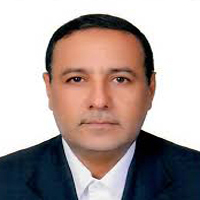Life Experience of Non-forgiveness in Injured Spouses: A Phenomenological Study
Despite the benefits that forgiveness has to improve and to strengthen relationships, people do not always respond to interpersonal transgressions and offenses by forgiving. A full understanding of how people respond to interpersonal hurts and transgressions will thus require a detailed examination of interpersonal circumstances that do not end in forgiveness. Therefore, the purpose of the present study was to investigate the lived experience of the unforgiveness phenomenon in the marital life of Injured spouses. The present study is a qualitative study of descriptive psychological phenomenology in which 10 participants (6 females and 4 males) were selected with a purposeful sampling method. A semi-structured interview method was used to collect data and this process continued until the data saturation stage. The results of this study showed that the experience of unforgiveness of Injured spouses has 5 constituents: 1- The severity and nature of the injury, 2- Sense of resentment, revenge, and avoidance from the offender, 3- Refusal of the offender from apology and regret and lack of his effort to compensate the hurting behavior, 4- Prevention from getting hurt again, 5- Getting rid of remembering the offender and getting rid of hurting memories. According to the results, it was found that why sometimes people do not want or can not forgive a hurting and wrongdoing spouse. The findings of this qualitative study also showed that forgiveness and unforgiveness are distinct though related constructs, only forgiveness incapable of reducing unforgiveness. The results of the present study are discussed in detail.
-
Developing an "Education Based on Psychological Empowerment" and its Effectiveness on Academic Hope and Acceptance and Action of Adolescents
Iman Baharvand, *, Gholamreza Rajabi, Zabihollah Abbaspour
Journal of Health Promotion Management, -
A paradigm model of school counseling services based on grounded theory
Rooholla Saadatzaade*, , Hamidr Farhadirad
Counseling Research & Developments,



